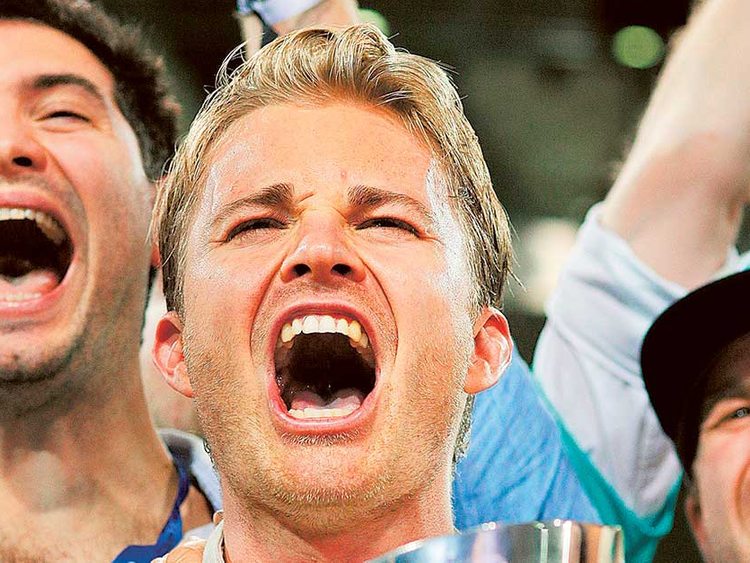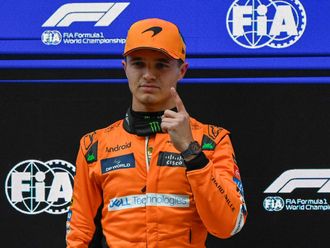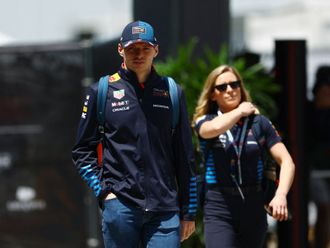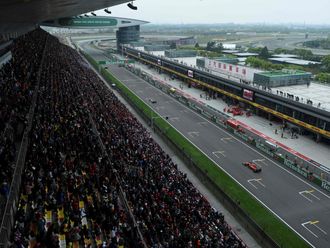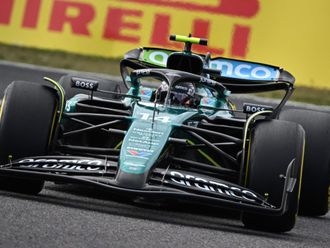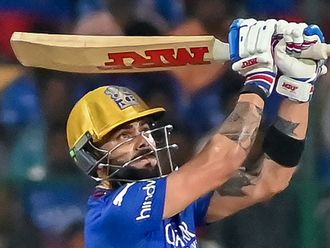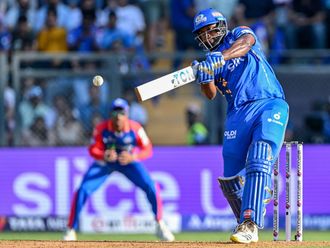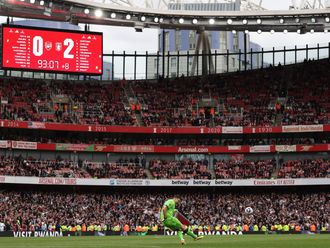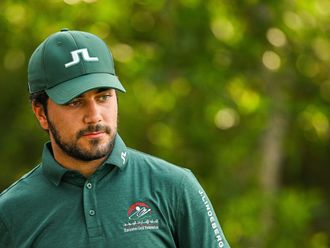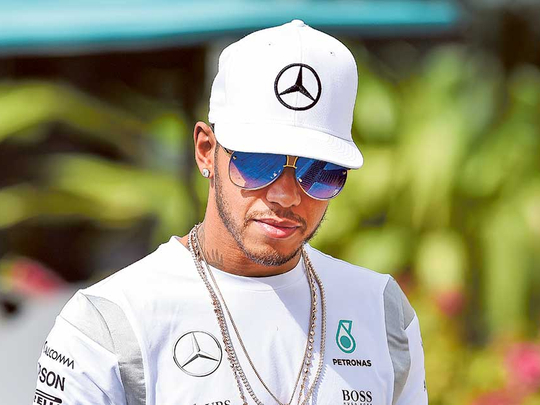
Brackley: Here at Mercedes’ space-age fortress on the fringes of Brackley, emotions are raw.
Lewis Hamilton is still lamenting the world championship that slipped from his clutches in the Abu Dhabi sunset, while Nico Rosberg, his friend-turned-usurper, is paying his final visit to the factory after a retirement announcement that has left Formula One agog.
Toto Wolff, the urbane team principal, is thrust into his familiar role of having to keep the peace.
In many ways, Mercedes, who have just wrapped up a treble of constructors’ titles, are a remarkable organisation: slick, ultra-disciplined, relentlessly forward-thinking.
Unsurprisingly, they guard their secrets ferociously. Underneath the interview room is the wind tunnel, where they are plotting a meticulous path to a fourth straight year of dominance in 2017.
Access to this area is harder to obtain than for a nuclear bunker in Nevada.
And yet in a more fundamental sense, this team are an open book.
Their insistence on putting two star drivers on an equal footing, with absolute freedom to race each other, has created the type of tension that could be sliced with a knife.
Since last month’s controversial season climax in Abu Dhabi, where Hamilton deliberately backed Rosberg into the chasing pack in a desperate last-gasp ruse to thwart his rival, the two have made a few stabs at being civil towards one another.
Hamilton even posted a touching picture on Twitter of them together in Greece as teenagers, congratulating his teammate on the fulfilment of a childhood dream.
But the lines of fracture are still clearly visible. Hamilton, who should be in serene mood as he heads off for a surfing holiday in Mexico, cannot hide his bitterness about how the final grand prix unfolded.
He remains angry at his team for instructing him to speed up over the closing laps, believing that this negated his natural racer’s instinct to win the championship by whatever means available.
Paddy Lowe, Mercedes’ technical director, made a rare intervention over the in-car radio, before Wolff suggested that Hamilton could be sanctioned for failing to follow orders.
“That was one of many uncomfortable moments of the year,” he says.
“Ultimately, seeing what had been said afterwards, I felt quite disrespected by the individuals who had spoken. You don’t expect that from those who are in charge of so many people.”
Has the situation since been resolved? “No, it hasn’t.”
Diplomatic subtlety has never been one of Hamilton’s strengths, but this still represents a remarkable broadside against employers who have steered him to two titles and 31 race victories in three years.
Wolff expresses astonishment when told of the allegation of disrespect, while Rosberg, well versed in such verbal provocation after his days fighting Hamilton in junior karting, offers a wry smile.
“So he felt disrespected? OK, interesting. That’s a new one.”
Rosberg gives the impression that he has had enough of Hamilton’s constant needling.
Being in the same camp as such a mercurial personality, famed for throwing sulks whenever his supremacy is threatened, can be an exhausting business.
So adept was Hamilton at ruffling him that Rosberg had to spend his summer break in August working with a mind coach.
“I really dug in with a mental trainer,” he explains.
“I got into meditation for performance.” Hamilton perceives such an approach with thinly veiled disdain, regarding it as an affirmation of his superiority that he forced Rosberg to go to these lengths.
“In my whole career, I have never had to work with a life coach or a mental coach. I take it as a compliment that he is throwing everything and the toilet seat at it. Look at other sports. When people know they have to go up against Tiger Woods, or Serena Williams, they know they have to lift their game.”
The connection between Hamilton and Williams grows closer, the more deeply he inscribes his name among F1’s greats.
He invited Serena, winner of 22 major singles tournaments, to the most recent Mexico Grand Prix and has cited her as an inspiration in his quest to keep adding to his feats.
Next season, he can be assured, with Rosberg’s absence, there will be no doubt over his alpha-male status at Mercedes.
Even if the team prise Valtteri Bottas from Williams to fill the vacant seat, Hamilton will feel more empowered than ever to lay down the rules.
Already, he is doing just that. Hamilton is unhappy at how Mercedes switched several of his engineers and mechanics to Rosberg’s side of the garage in the early part of the season and has urged Wolff not to meddle again.
“Before next season, I’m going to say to Toto, ‘I don’t want these guys to be changed. Please just leave us to do our job’. I want to keep them all.”
At times lately, Hamilton has acted as if he glimpses a conspiracy around every corner. When he found himself in the lead in Malaysia, only for his engine to blow up, he all but accused Mercedes of sabotage, raging that “it does not sit right with me”.
Even today, it is a mentality he struggles to shake off.
“When you have something in your head, it’s there. You think it can’t be a coincidence that all these things have happened.”
Hamilton’s pain turned out to be Rosberg’s gain. Fortified by the expertise of his mind guru, the German won three grands prix in succession after the summer hiatus to establish an advantage he would never relinquish. He knew that the champion’s crown was his to lose.
Nothing, though, could quite steel him for the strain he would come under during those nerve-shredding final laps at Yas Marina.
“It was one of the most intense moments I have ever had,” he says.
“The only one worse was watching my wife give birth.”
Given that Hamilton had started from pole in Abu Dhabi and needed Rosberg to finish outside the podium places if he was to seal his fourth drivers’ title, the possibility that he would seek to leave his teammate at the mercy of the traffic behind had been widely trailed.
“I had no idea how far he was going to go,” Rosberg says, shuddering at the memory of Sebastian Vettel’s Ferrari and the Red Bull of Max Verstappen looming large in his rear-view mirrors.
“I just saw these two guys, hot as hell behind, smelling the victory. It was probably naive, but I didn’t think Lewis would do it that way. The way we had been speaking internally, it was very clear. He always said that he wanted to go as fast as possible and win by the biggest margin, to put out a statement. Little did I know.”
Wolff, likewise, reacted to Hamilton’s defiance with a mixture of horror and amazement. The only mercy, he acknowledges, is that he was not able to impart his true feelings to his obstinate driver via radio link.
“If I had the button, I would get emotional — and that wouldn’t be good for the image of the team.” For Rosberg, the realisation dawned after this duel that he had followed his ambitions to their fullest fruition. Even his interview-averse father Keke, the world champion in 1982, made an appearance in the paddock to share in the celebrations. Could such an experience be repeated? Did he have the appetite for another grinding eight-month battle with a crafty provocateur like Hamilton? He decided, even if it meant giving up an pounds 18 million (Dh82.5 million) salary, that it would be better for his life, even his sanity, that he stepped out of the cockpit entirely. “At the highest level, family can get left behind,” says Rosberg, whose wife Vivian gave birth this year to their daughter, Alaia.
“It wasn’t an easy decision. But I have never driven for the money. It feels right to me. I feel fulfilled. I am at the top of my Everest.” The finality of his decision shocked even Wolff. The two of them had flown to Malaysia the day after his title triumph, on a visit to sponsors Petronas, and Rosberg had not breathed a word about retiring. But within three minutes of them parting ways at Frankfurt airport, the fateful call came. “Nico said that he tried to tell me over dinner on the aeroplane, then again over breakfast in the morning,” reflects Wolff, who admits they both cried. “He said, ‘I just didn’t have the balls to tell you to your face.’ I couldn’t believe it. I tried to call him back. But he said, ‘No, don’t call back’” With that brief exchange, Rosberg reached the end of his road, creating a fascinating conundrum for Hamilton. If a tempestuous 2016 taught us anything, it was that these two could barely stand each other. In 2017, we will find out how successfully they can live without each other.
Oliver Brown, The Sunday Telegraph


